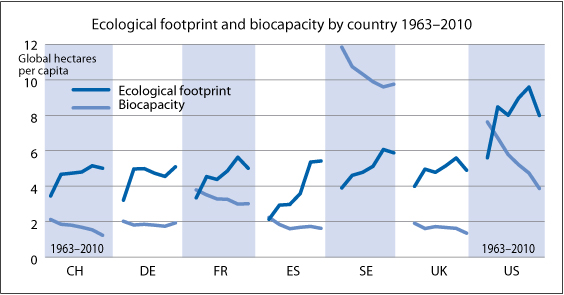
Definitions/comments
Ecological footprint: a scientific method for determining in what areas and how heavily humans impact on the environment. The method employs the magnitude of the uses of, and stresses on, natural capital, such as consumption of oil and food products, to calculate the surface area which would be required to provide these resources in a sustainable manner (hypothetical area requirement in global hectares).
Biocapacity: ability of the environment to produce raw materials, such as wood, and break down pollutants (biological capacity of an area).
Global hectare: one hectare with productivity equal to the average productivity of the biologically productive hectares on earth.
Source: Global Footprint Network.
Print this pageDownload datain Excel format

 Ecological footprint and biocapacity by country 1963-2010
Ecological footprint and biocapacity by country 1963-2010  Composition of the ecological footprint by country 2010
Composition of the ecological footprint by country 2010  Public environmental expenditure 1990-2009
Public environmental expenditure 1990-2009